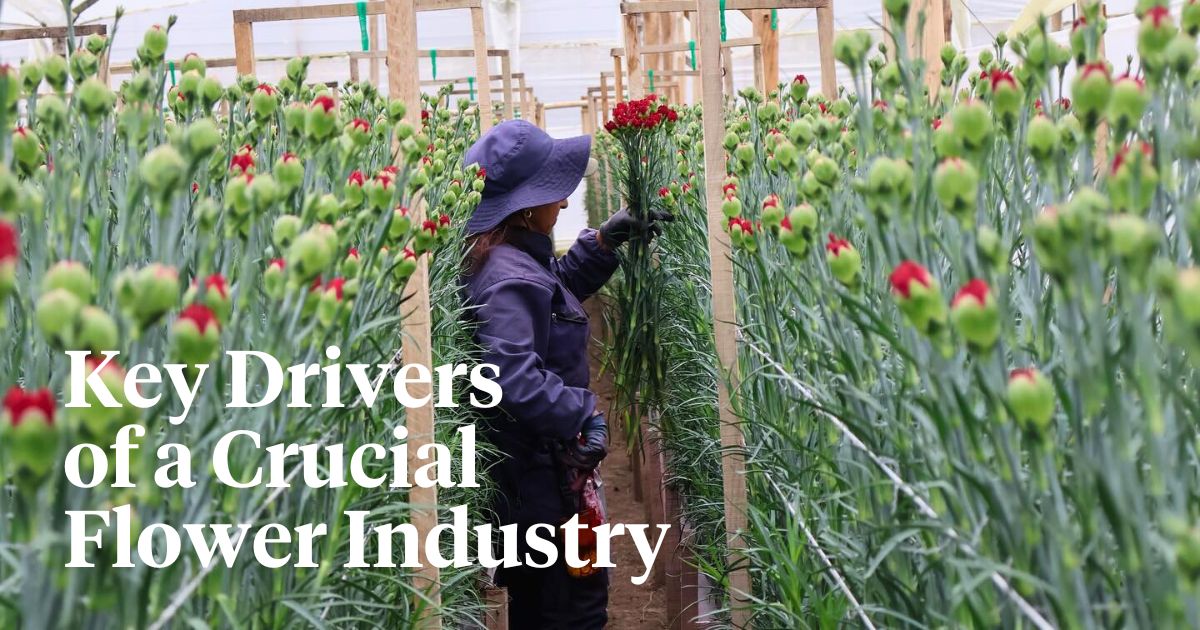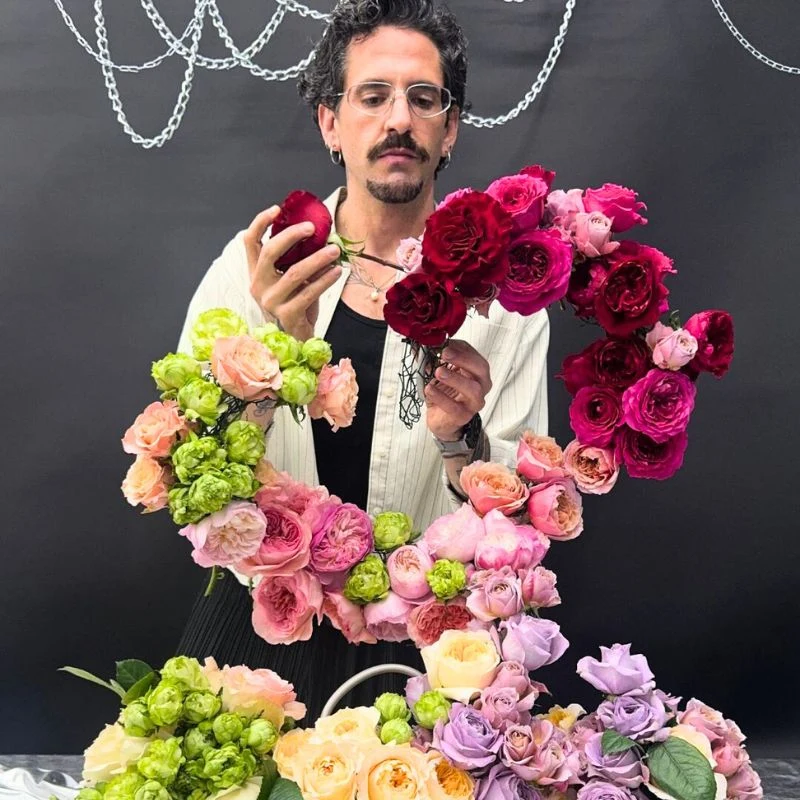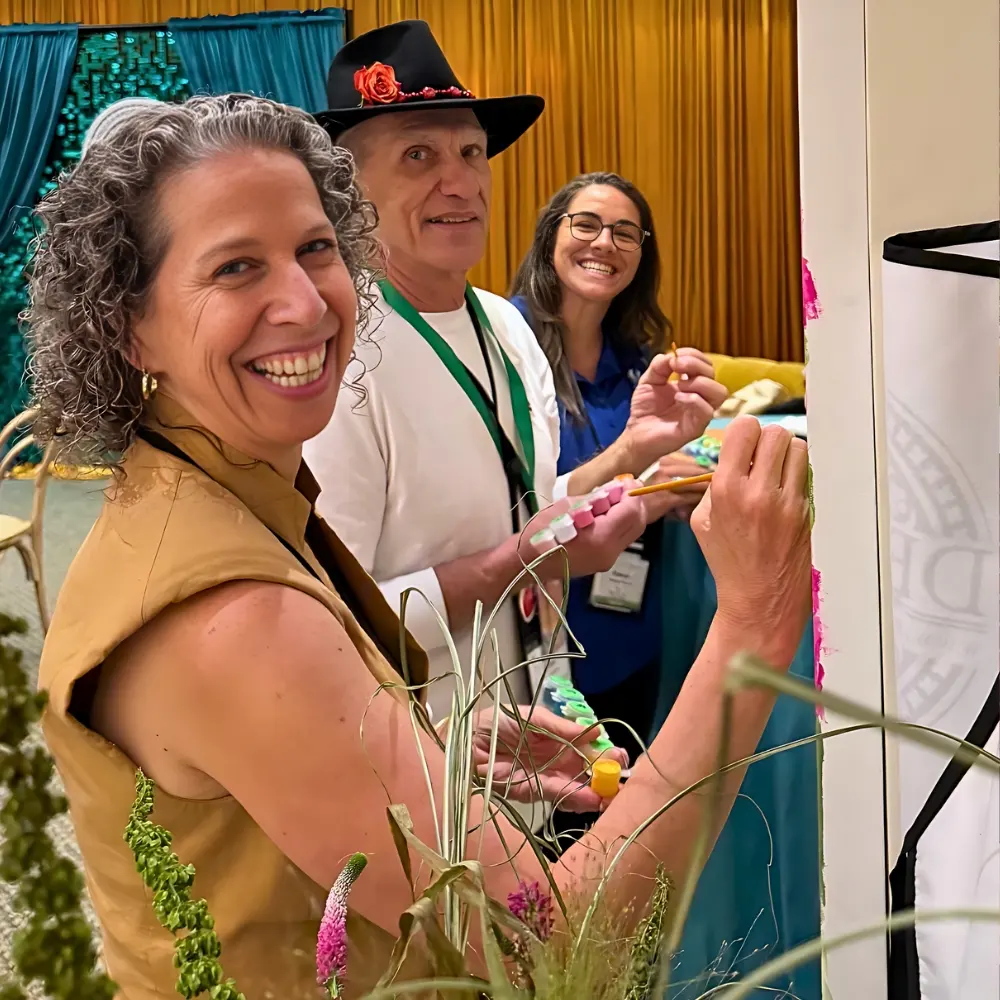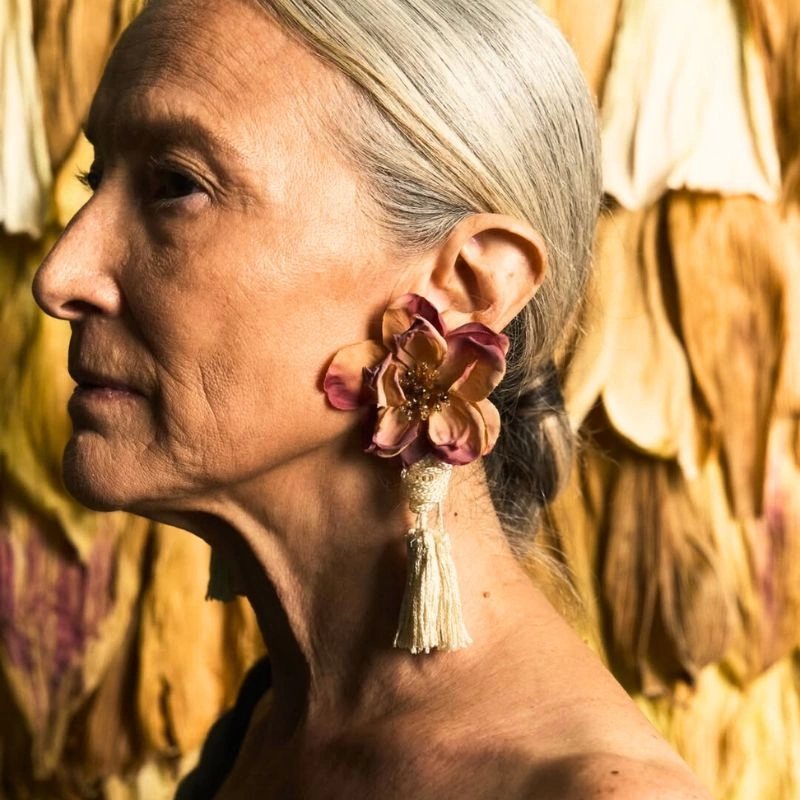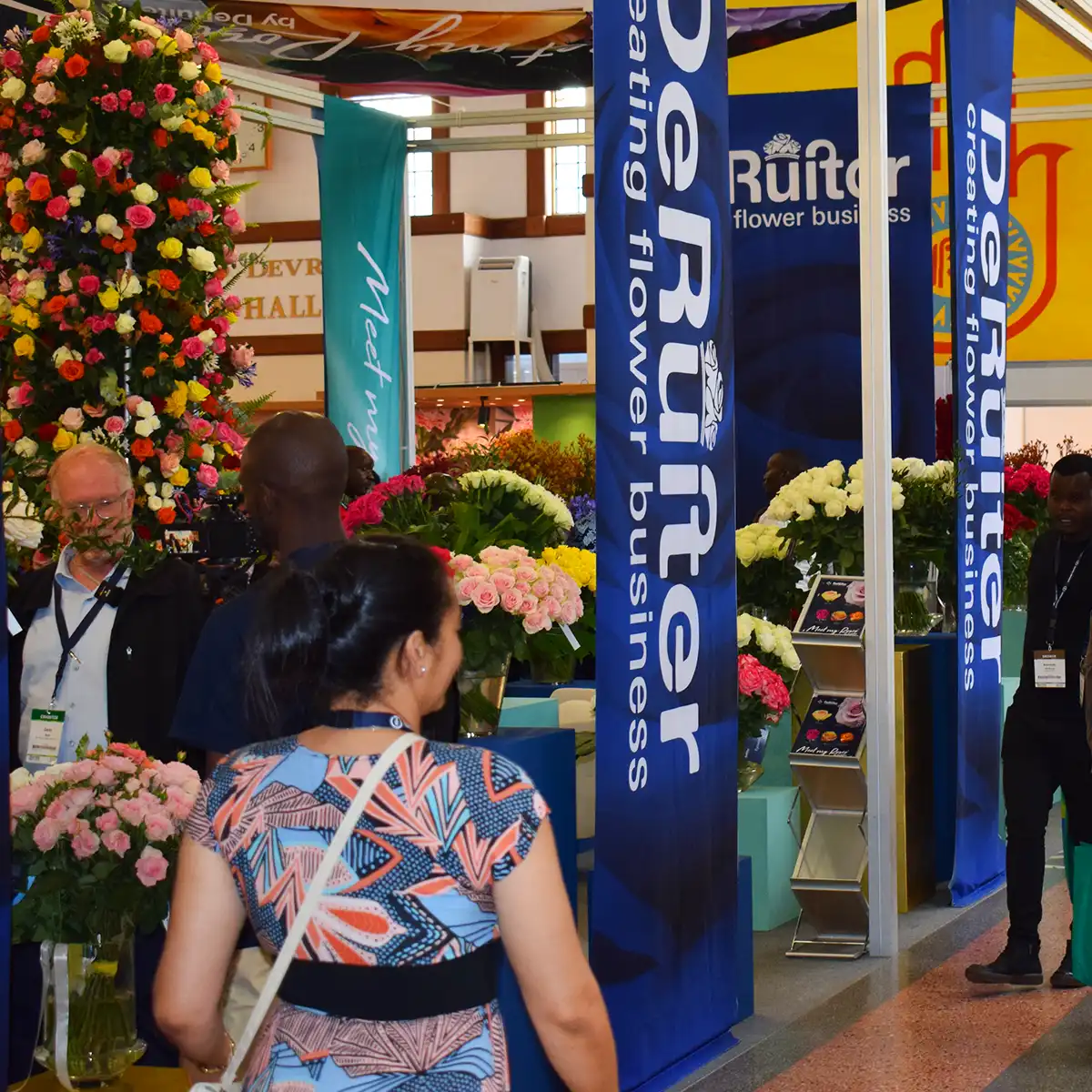Colombia is a country whose name has long remained synonymous with exceptional flowers and a booming floriculture industry. This has cemented its status as one of the world's leading flower producers and exporters. The country’s flourishing floriculture industry has, over the years, ensured that Colombia is a leader in flower exports in the Latin American region. As a result, the country is renowned for its diverse flower varieties that grace markets worldwide.
This remarkable feat is, in no small part, due to the efforts of the Association of Colombian Flower Exporters - Asociación Colombiana de Exportadores de Flores (Asocolflores). Established over five decades ago, it has, since its inception, been the driving force behind the industry's international floriculture success. The association thrives on building the country’s competitiveness in major international markets and championing sustainable practices that have become a hallmark of Colombian flowers.
The Birth of Asocolflores and Its Successes Years Later
Colombia is a country of many unique diversities. A country in which, for instance, the snow-peaked Sierra Nevada de Santa Marta mountains in the north easily juxtapose with the verdant lushness of the Amazon rainforest in the south and unique weather conditions that support a unique flora and fauna biodiversity. Its thriving tropical rainforests, also, host thousands of species of plants and flowers.
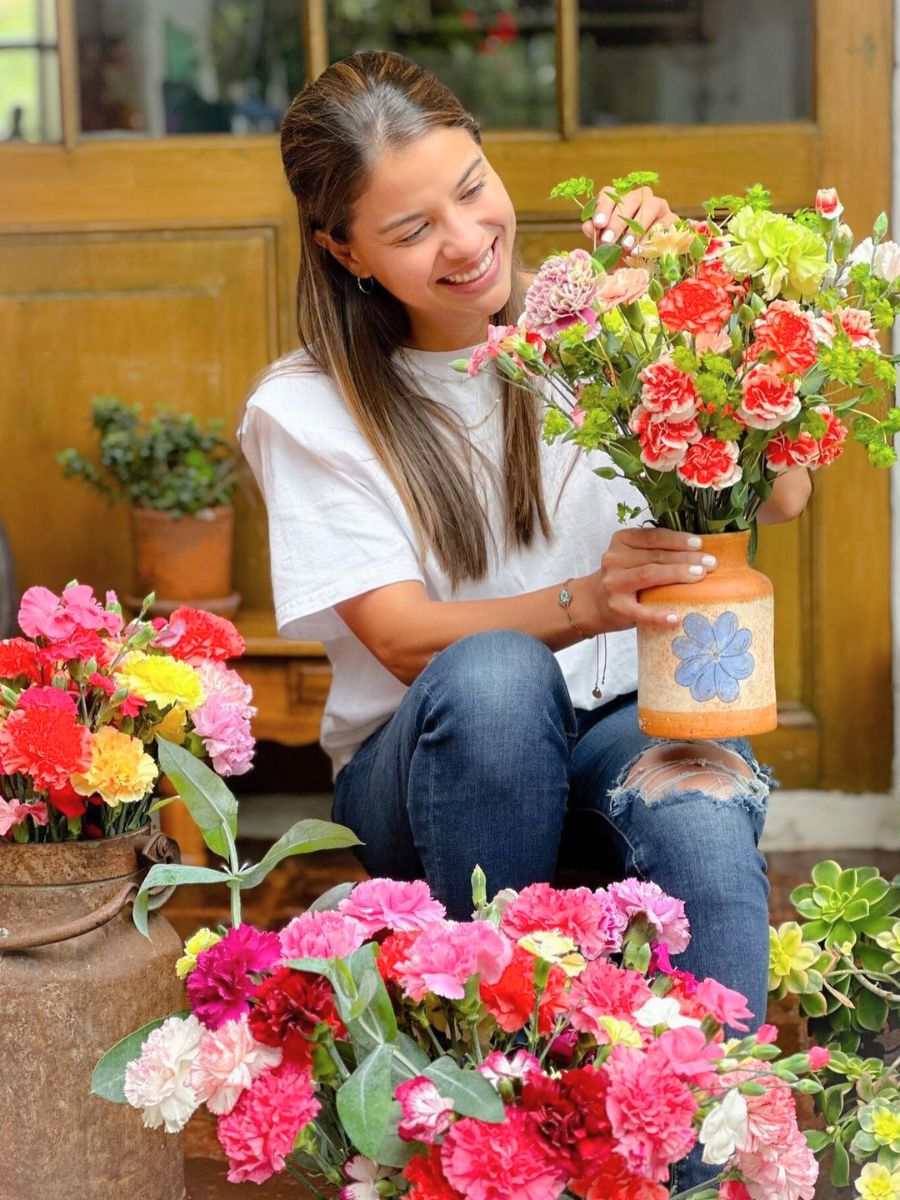
Photo by @floresauroracolombia
With these, amongst its other obvious gems, the country’s picturesque landscapes are just as diverse as they are awe-inspiring! But whereas these — and many other — unique characteristics are, on their own, quite something to behold, Colombia’s air also hums with the buzz of millions of pollinators attracted to, and nourished by the country’s ever-blossoming floriculture industry's flowers.
Hundreds of flower farms dot the landscape, mainly in the Savannah of Bogotá, as well as Antioquia, and elsewhere, especially in the central region of the country, making the country’s floriculture industry an important one in the global flower trade. And this is the point where Asocolflores comes in.
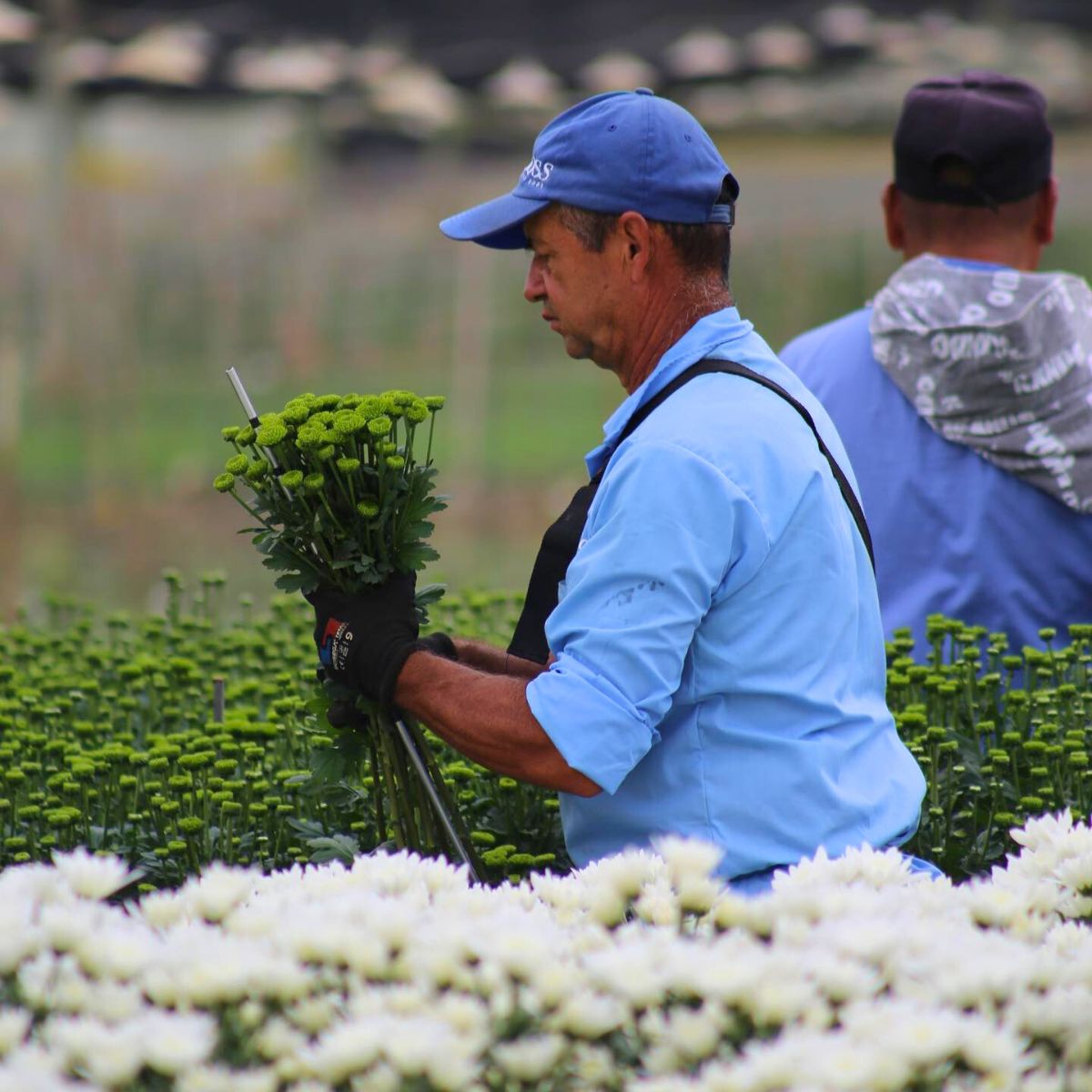
Founded in 1973 as a non-profit guild organization with a clear mission, Asocolflores which brings together the country’s flower growers represents and promotes Colombia’s flower-growing industry in international markets, and drives the country’s comprehensive floriculture development.
The association was formed to address the challenges faced by the then-nascent industry, including access to markets, research, transportation, and certification. With a key focus on social responsibility amongst other issues, Asocolflores sought to improve the general flower industry, the quality of life for workers and their families, as well as support vulnerable sectors of the population.
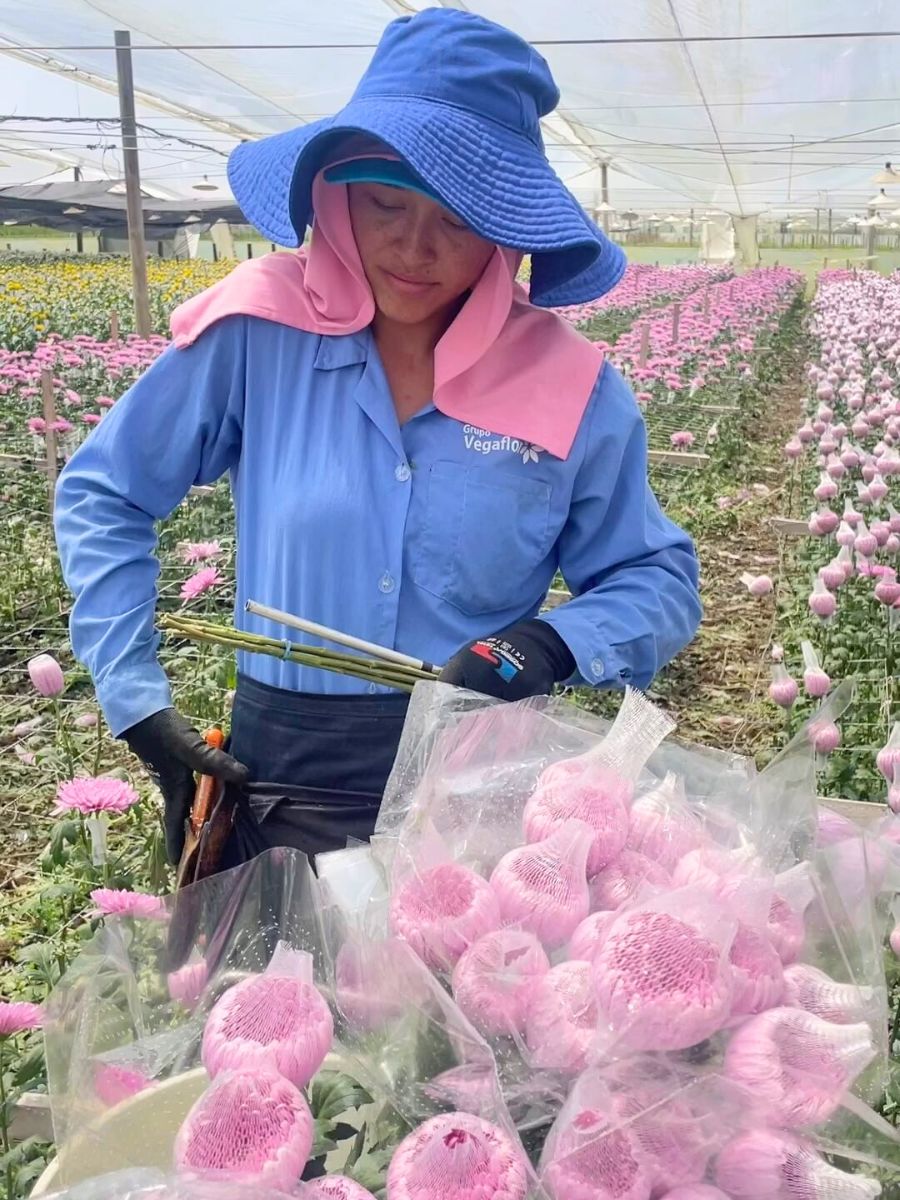
Back then, the industry faced numerous challenges, including a lack of infrastructure, limited access to technology, and fierce competition from established players. However, Asocolflores' founders only saw the immense potential of Colombian flowers in the international market. They recognized the unique advantages of the country’s ideal climate, influenced by its proximity to the equator, fertile soils, and skilled workforce, and were keen to harness these strengths to drive the industry forward.
Thus, years later, Augusto Solano, the current president of Asocolflores, acknowledges that there have been great achievements in this industry and that the organization has (and continues to) played its part — a key part in that — in creating the pulse around Colombian flowers globally.
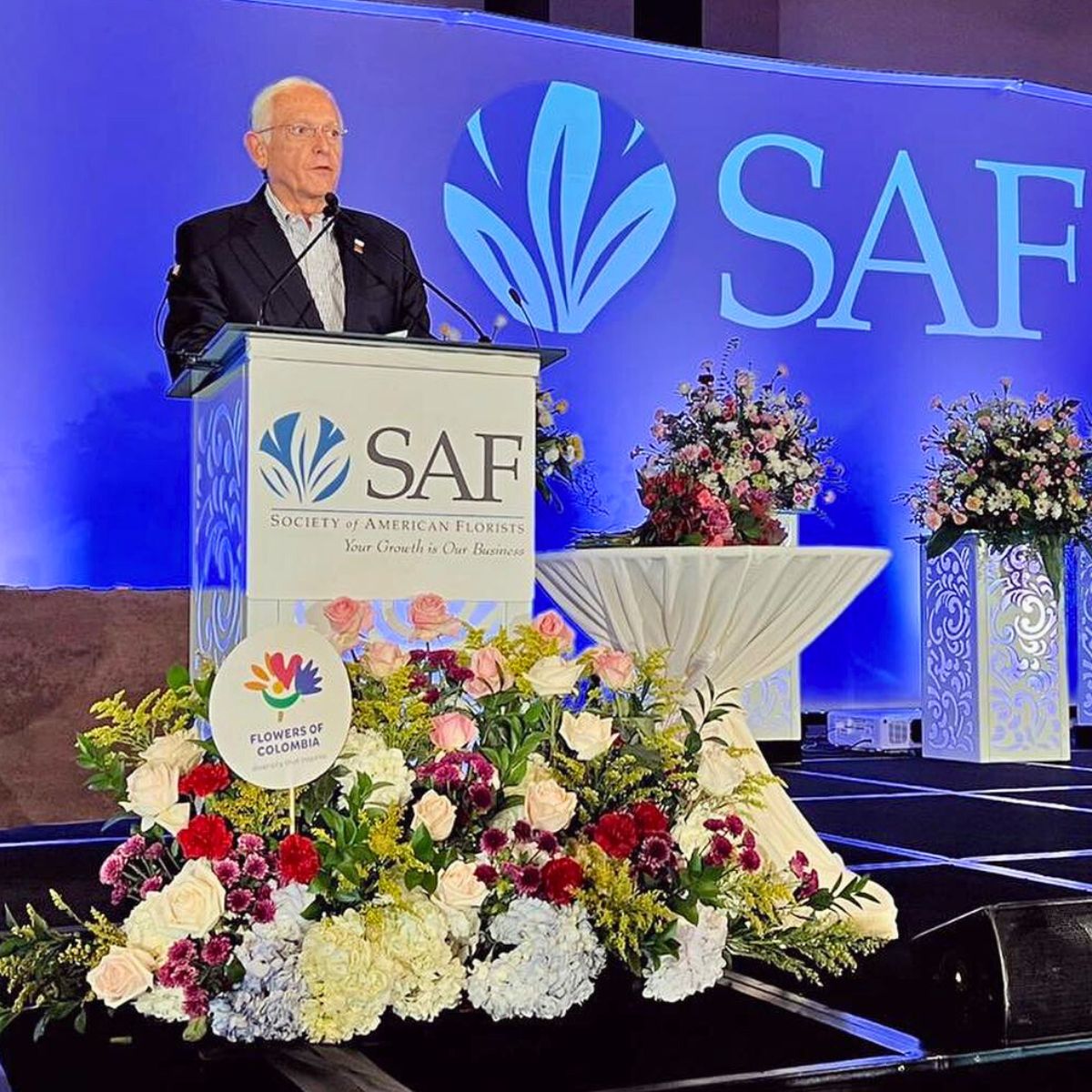
Photo by @flowersofcolombia
Through its five pillars of advocacy and representation of the growers’ - and flower industry - interests, providing information for action and decision-making, ensuring sustainable floriculture practices, promoting floriculture innovation, and facilitating marketing, the Bogota-headquartered Asocolflores has done it all to ensure that the Colombian flower is one of the very best globally. Essentially, these five pillars form the basis of Asocolflores’ approach to achieving more and better results in the flower sector.
Asocolflores:
“At Asocolflores, we strengthen sustainable floriculture in Colombia so that our flowers generate well-being and inspiring experiences.”
And, just to be ‘closer’ to the flower growers — especially the smallscale growers — the association, also, has branches in Rionegro (Antioquia Department) and Pereira (Risaralda Department). These subsidiary offices help bring together the smaller flower growers in their respective regions.
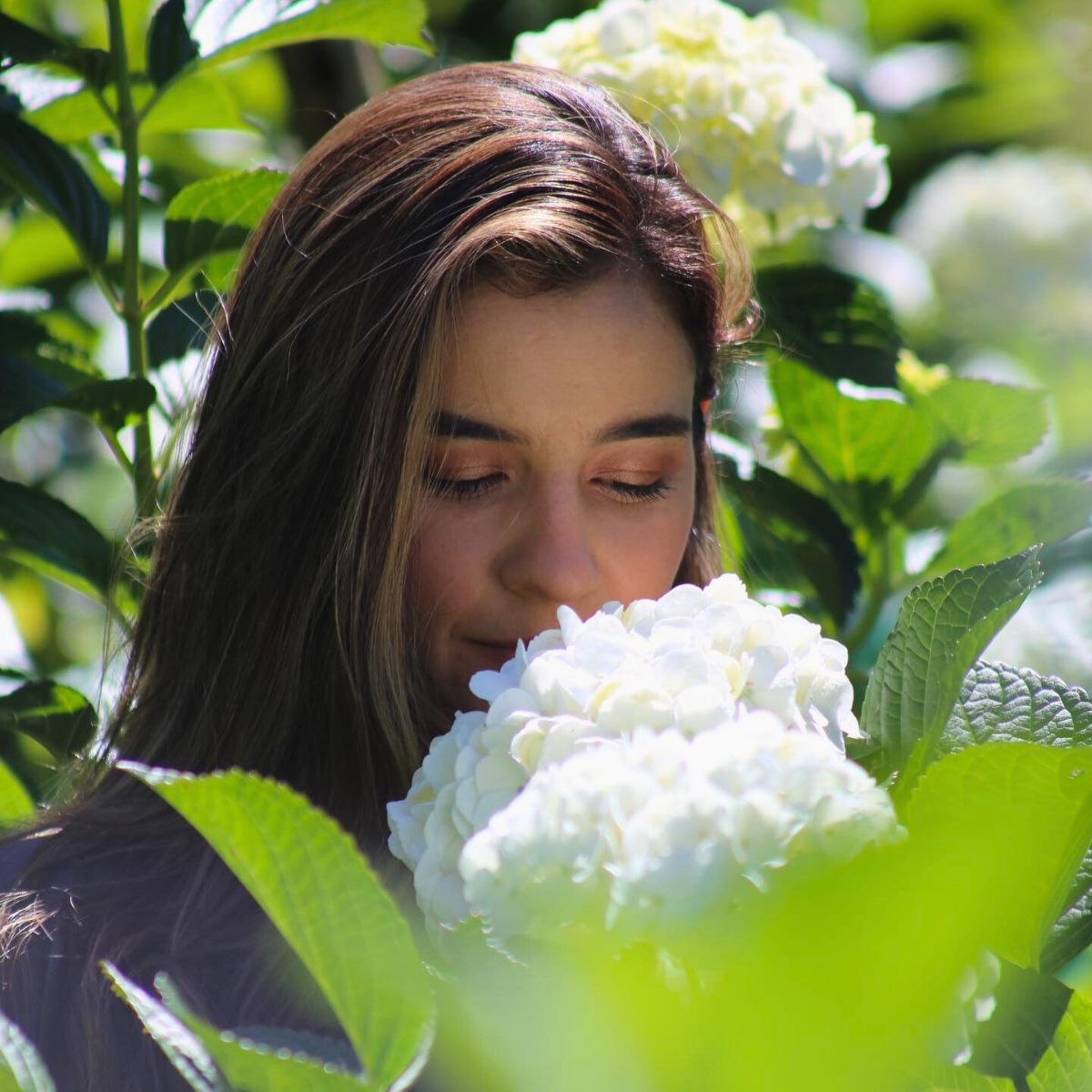
Photo by @grupovegaflor
Enhancing Colombia's Flower Industry
Asocolflores has implemented a range of initiatives to strengthen the Colombian flower industry and ensure its global competitiveness. Such include:
Market Access and Promotion.
The association actively promotes Colombian flowers in international markets by participating in trade shows, exhibitions, and flower business organizations worldwide. The guild has, accordingly, been instrumental in opening new markets, including in the U.S., and Asia for Colombian flowers. In this regard, Asocolflores launched the Flowers of Colombia campaign in 2017 to promote and build brand and product awareness across all the markets that the country exports its flowers to.

Research and Innovation
The association builds and nurtures collaborations between different organizations, as well as between growers, researchers, and universities, to improve flower cultivation techniques, enhance flower quality, and address industry challenges. This ensures Colombian flowers remain at the forefront of global trends.
Social Responsibility and Worker Welfare
Asocolflores, also, prioritizes the well-being of workers and their families. The association has implemented various social responsibility programs and supports vulnerable communities. The association has, for the last 50 years, been tirelessly working with all the workers of the Colombian flower sector. It has undertaken all considerations and actions focusing on generating an income and creating more opportunities to improve the living conditions of these workers and their families.
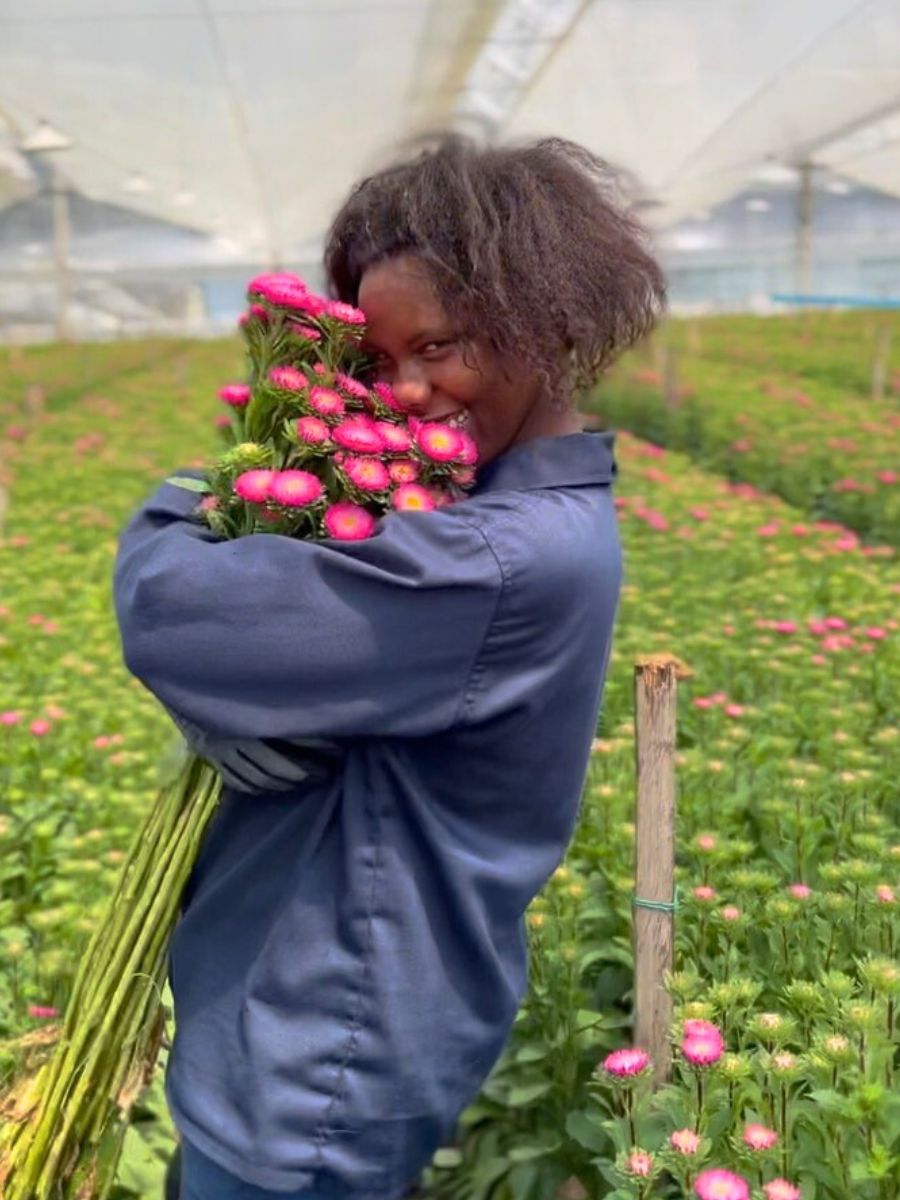
An example of this is the Blooming Together program, a strategy through which Asocolflores advises and coaches its affiliated flower companies to strengthen their collective action and generate suitable conditions for women to have access and permanence in the flower-growing industry, as well as a career in floriculture, knowing that this is a gender-violence-free sector.
The main lines of action in the program include generating strategic information and baselines, coaching them on the specific needs of the sector with a focus on gender equality, and strengthening the paths to prevent, detect, and address gender-based violence issues. As a result of this, in 2023 Asocolflores received two awards for the strategies and efforts that it has in place to achieve gender equality and empower all women. These were the Recognition of Good Practices in Sustainable Development 2023 (from the Pacto Global Red Colombia), and the XPosible 2023 Award from Colsubsidio.
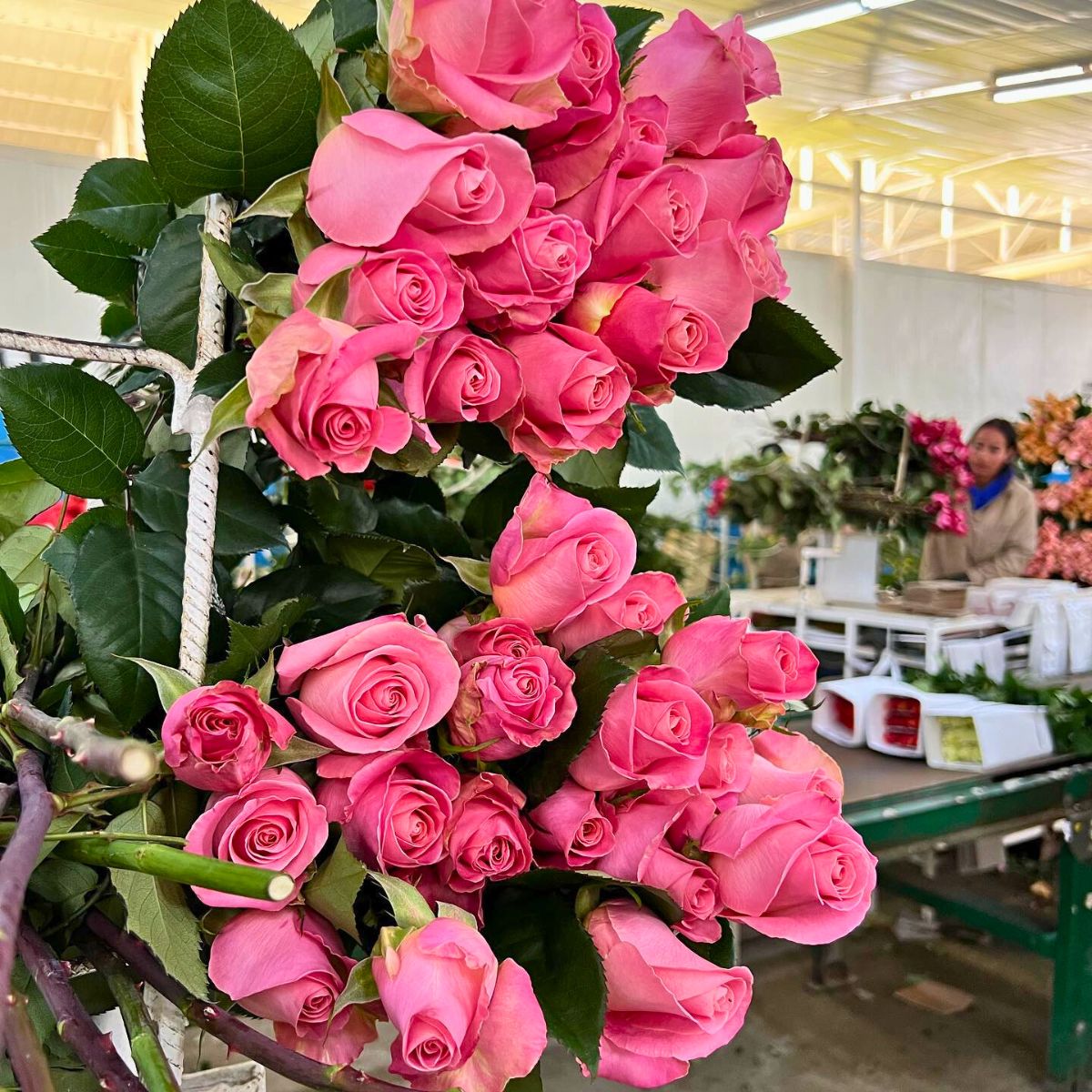
Photo by @flowersofcolombia
Sustainability and Floriculture Practices.
Sustainability is essential in the Colombian floriculture industry. Asocolflores is, as a result, a leader in sustainable floriculture, promoting sustainable practices for the well-being of all. The association champions a variety of ideas that support the sustainability cause by encouraging growers to adopt environmentally and socially responsible practices.
One example is the Florverde Sustainable Flowers (FSF) certification which began 27 years ago in Colombia as one of the most important tools for continuous improvement and a guide to good practices for companies in the floriculture sector, in social and environmental terms, in international markets. It began in Asocolflores as an internal code of conduct in 1996, in 2001 it became a second-party verification system, and in 2005 it evolved into an independent third-party certification system.
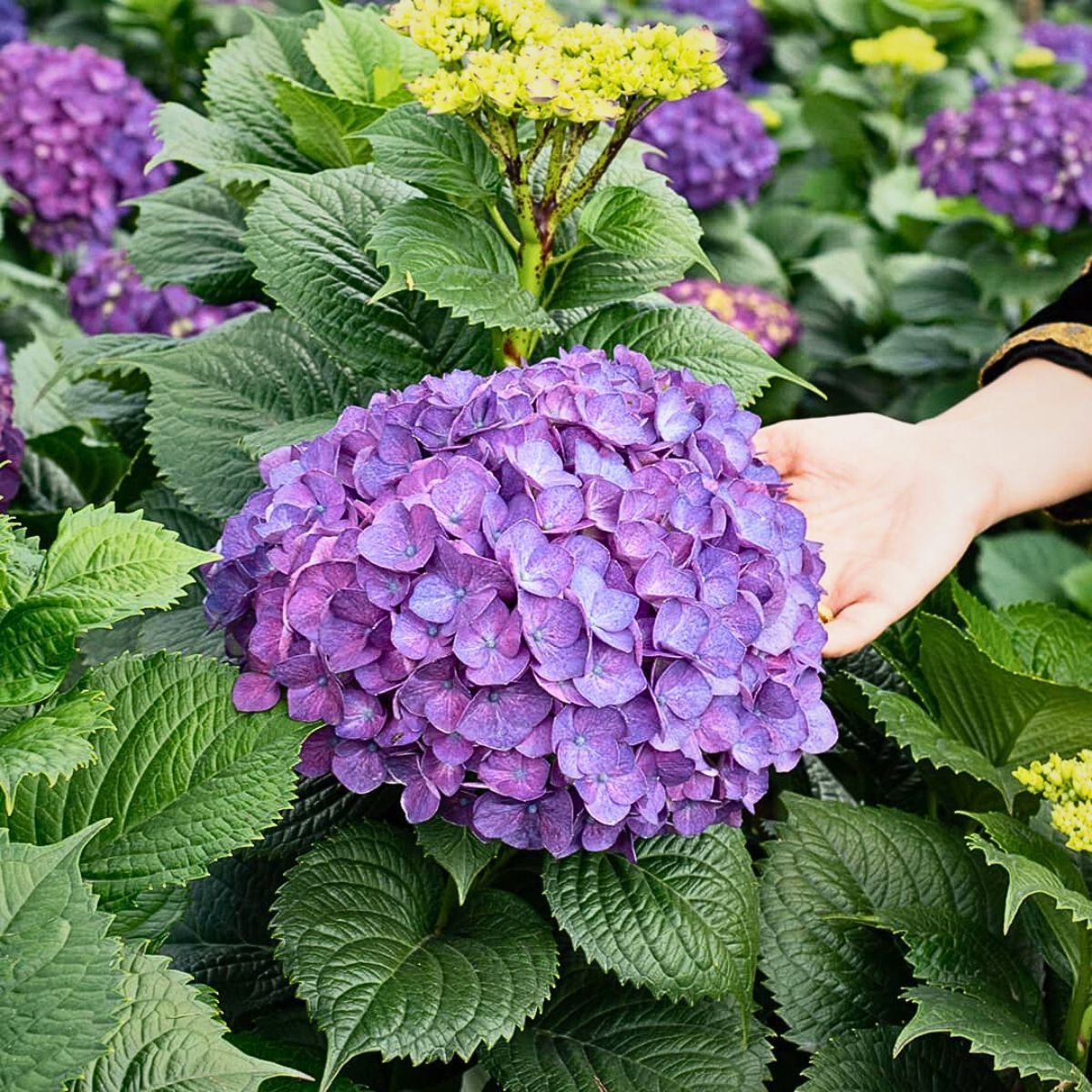
Photo by @flowersofcolombia
Some achievements implemented by FSF have allowed, amongst others, that member farms report to date a reduction of 53% in the use of chemical pesticides and a decrease in the use of higher toxicity pesticides of 99.7%. Also, FSF has been instrumental in reducing the use of water, of which 57% is now derived from rainwater and 100% of the certified farms have efficient water-saving programs. 42% of the Colombian production area is certified with Florverde.
The Numbers: Colombia’s Floriculture Industry’s Brief Outlook
In a country known for its quality and sustainably produced flowers, the flower industry in Colombia is thriving, and that’s undeniable. The country produces at least 6,400 flower varieties, grown on at least 25,946 acres of land. It exports these flowers to some 100 countries worldwide, and its flower market size is estimated at about USD$2 billion.
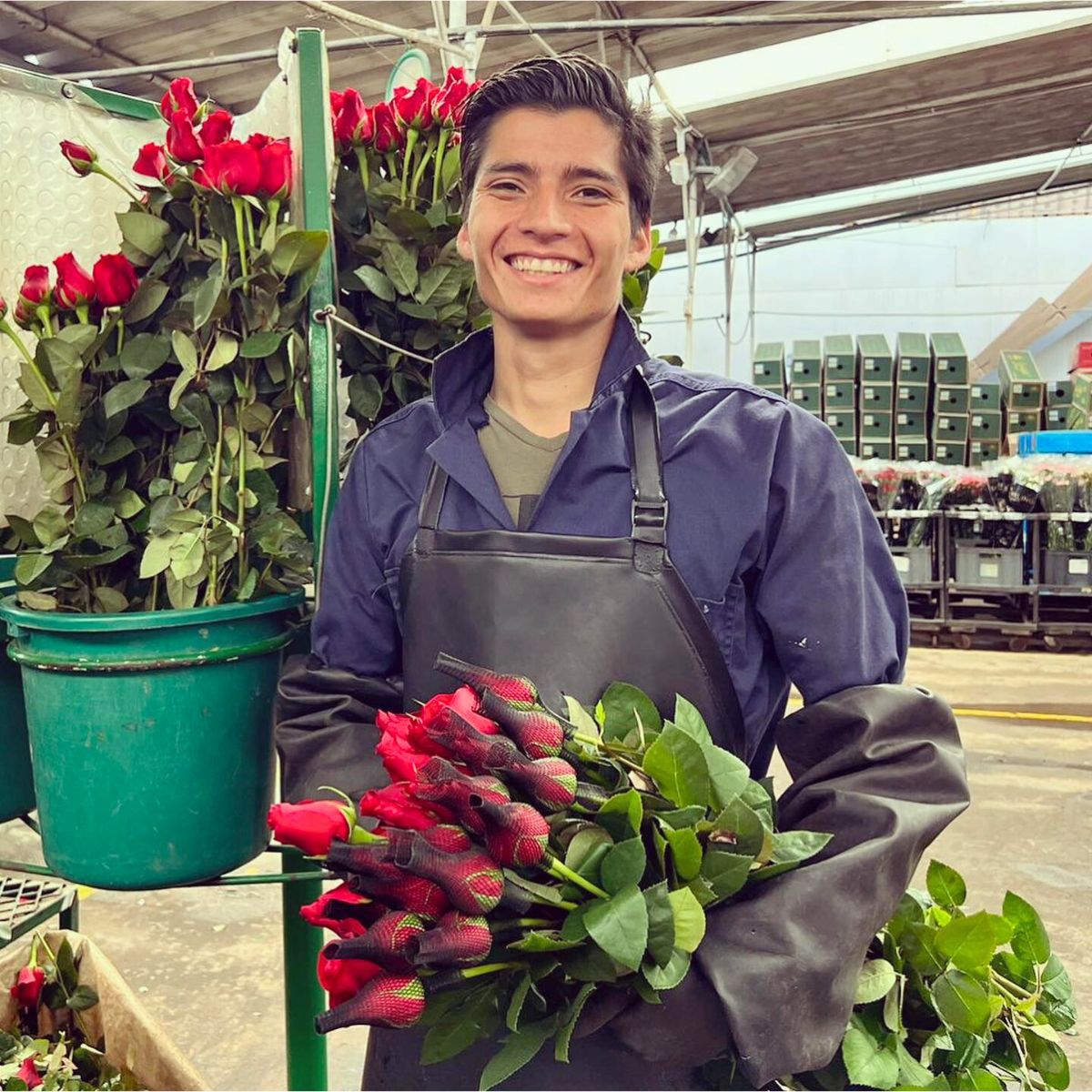
The country has, for the most part, been the leading producer and exporter of carnations globally. It is, in fact, recognized for the diversity and quality of its carnations. The flower industry in this South American nation also provides formal jobs for more than 200,000 people in the country.
Also notably, Colombia is the second largest exporter of cut flowers globally (after the Netherlands) and exports 80% of its flower production to the U.S., mainly through Miami.
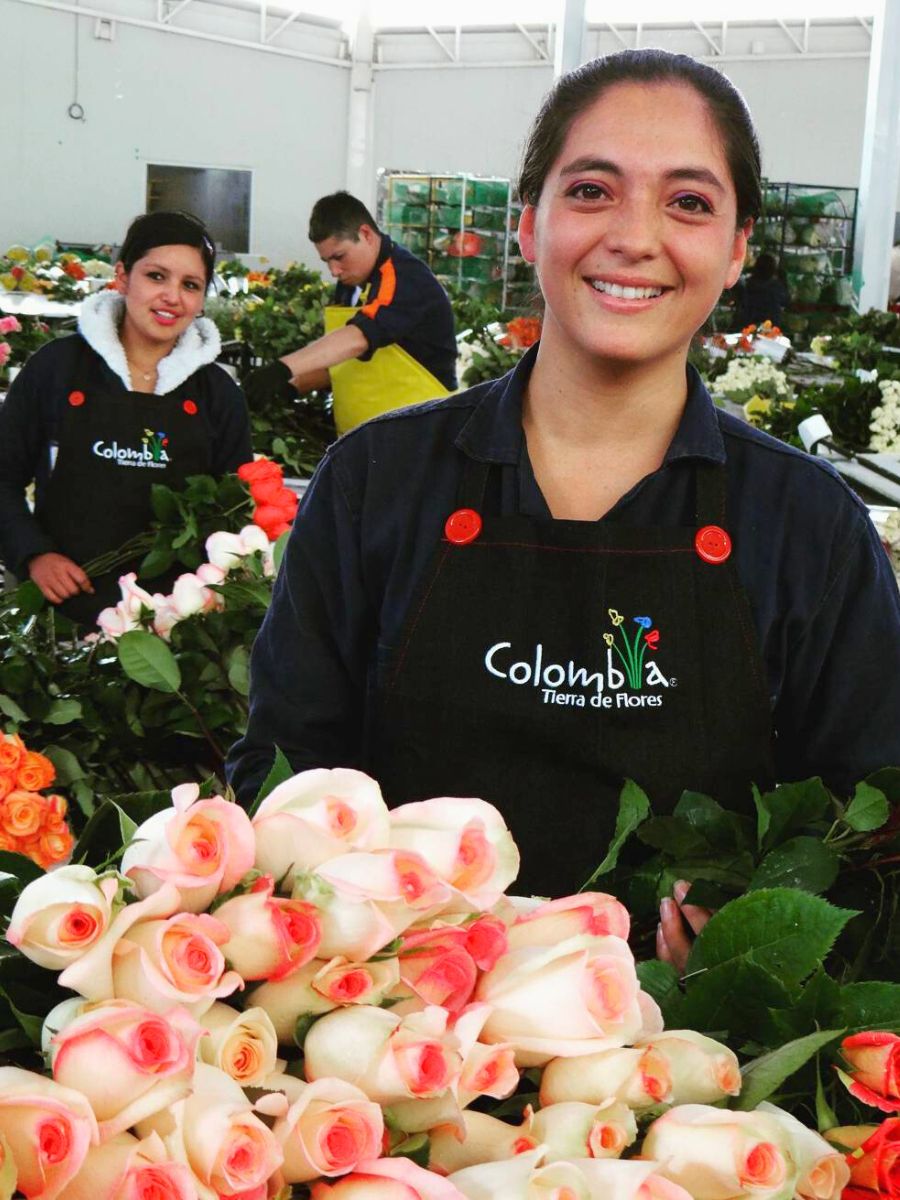
Its other cut flower destinations include Canada, the U.K., Spain, the Netherlands, France, Germany, Japan, Australia, Korea, and Russia. Aside from carnations, roses, hydrangeas, chrysanthemums, lilies, and alstroemerias are some of its other leading flower offerings. Canada is the second main destination for Colombian cut flowers, and in 2022, USD$66 million worth of Colombian flowers were exported to the country, a growth of 13% compared to 2021.
Implementing Sustainability and Other Programs at the Core of Colombia’s Flower Success
According to Augusto, Asocolflores largely directs its efforts toward sustainability, social responsibility, and shared value in the Colombian flower industry, working with numerous partners and institutions to ensure social and environmental standards are not just observed but also heeded to the very end.
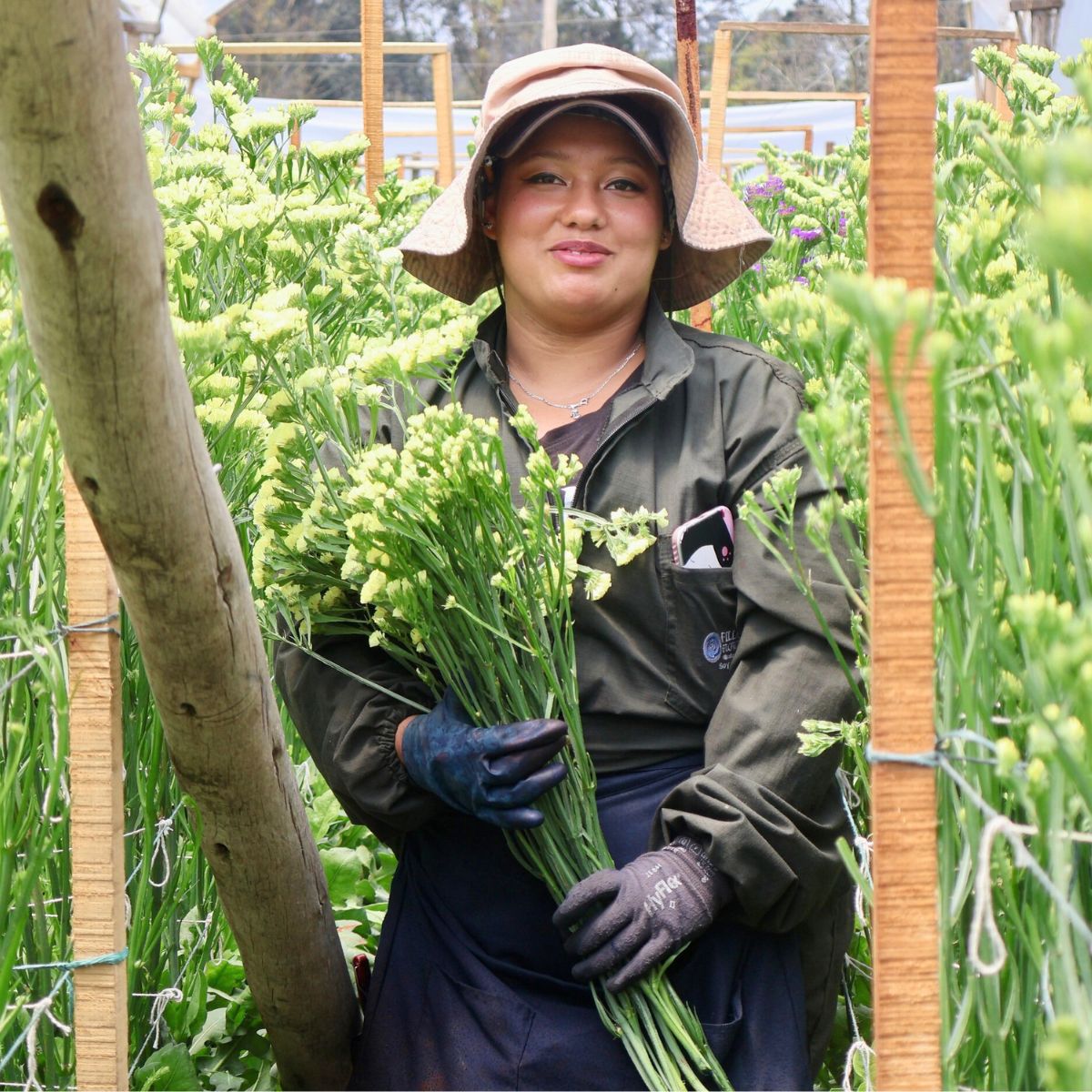
The association, for starters, implements FSF, the Colombian certification for the floriculture sector. This is the second oldest and among the best floriculture certifications in the world. It promotes responsible and sustainable practices in the floral industry, focusing on promoting environmentally and socially responsible flower production and trade.
It also aims to ensure the well-being of flower workers, protect the environment, and support local communities. Asocolflores achieves all these objectives by ensuring that flowers certified under the scheme have been responsibly produced.
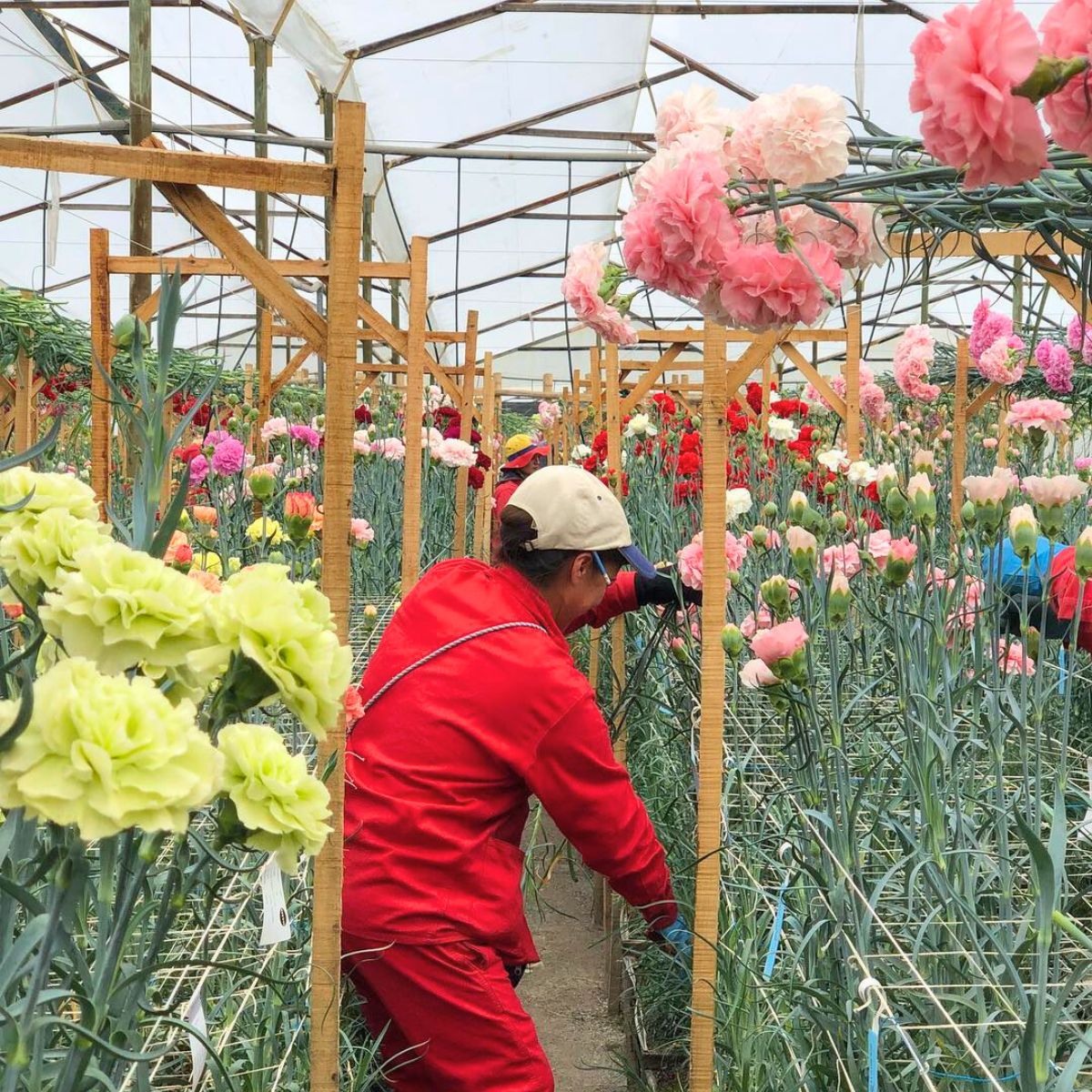
FSF, basically, enables flower growers to quantify and monitor their environmental, social, and economic performance across key metrics like carbon footprint, water usage, pesticide consumption, worker truancy, and labor turnover. This data-driven approach has been instrumental in guiding continuous improvement efforts and ensuring transparent, ethical relationships across the flower supply chain.
Ceniflores, the Center for Innovation in Colombian Floriculture, is also another initiative promoted and implemented through Asocolflores. This program encourages the development of better production practices and seeks solutions to phytosanitary problems. Ceniflores generally plays a crucial role in advancing sustainable practices, addressing challenges in the flower industry, and promoting the development of Colombian floriculture.
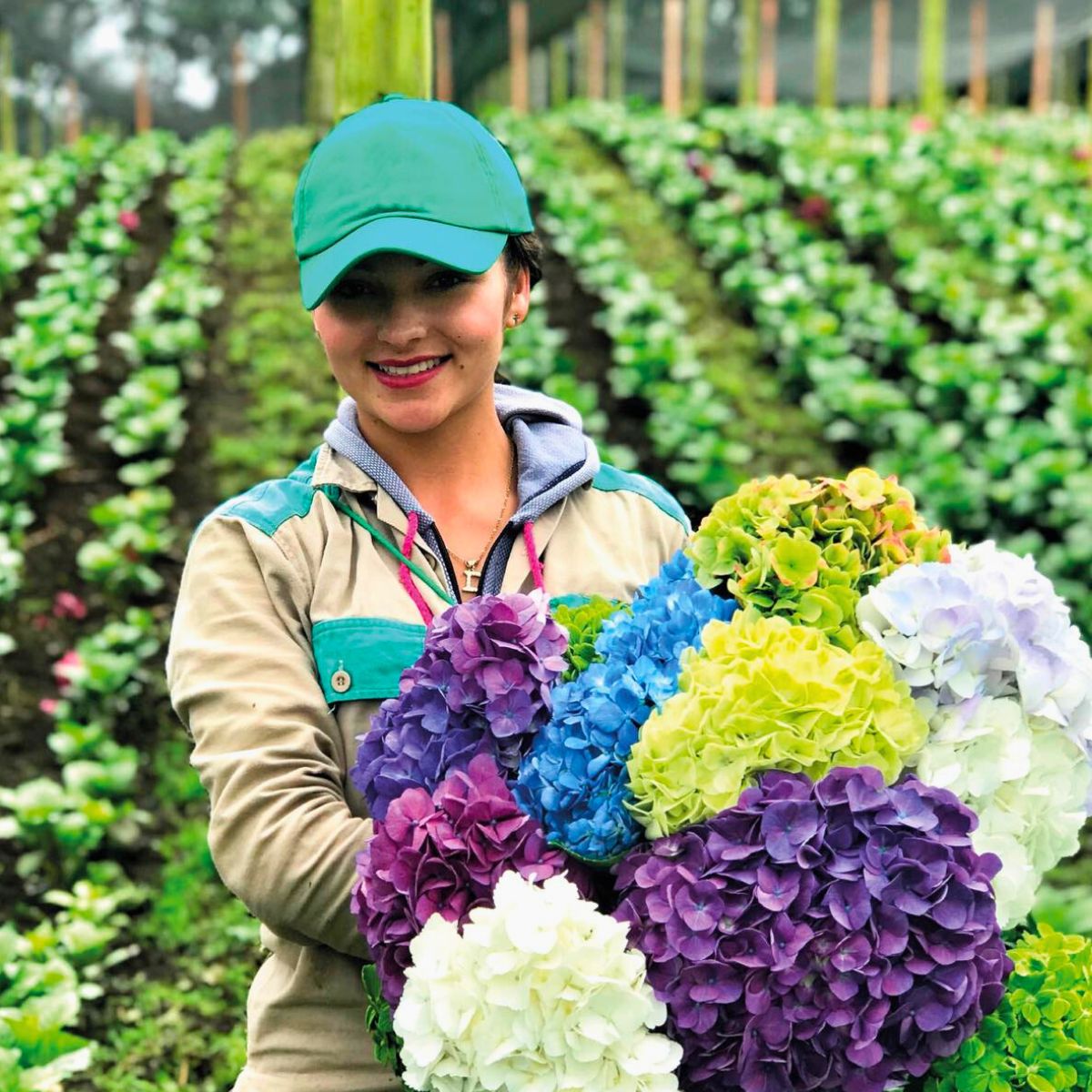
This is a kind of 'triangle of innovation’ that brings together government, academia, and industry to tackle production and supply chain challenges, through a collaborative approach that has positioned the flower sector as a leader in agricultural research and development. It enables the development of pioneering solutions to navigate the complexities of the flower industry. Ceniflores sometimes works closely with the Colombian Agricultural Research Corporation (Agrosavia) and the Colombian Agricultural Institute - Instituto Colombiano Agropecuario (ICA).
Asocolflores has, also, made the empowerment of women and workers a central pillar of its social responsibility agenda. Of the over 200,000 formal jobs that the flower industry provides in Colombia, 60% are held by women, many of whom are the sole breadwinners for their families. Asocolflores' member companies participate in providing these workers with access to skills training, housing support, recreational activities, and employment assistance programs.

Photo by @proflora.co
Also, Asocolflores organizes Proflora. This is one of the most important fresh-cut flower expos in the world and takes place every two years in Bogota. The expo gathers leading producers, exporters, buyers, sellers, suppliers, and service providers from the flower industry, presenting them with an opportunity to network and identify new leads for flower products. Proflora also helps promote Colombian flowers.
Partnering With Different Other Institutions
Recognizing the power of cooperation, Asocolflores has, similarly, established strategic partnerships, amplifying the reach and influence of the Colombian flower industry on the global stage. The organization holds seats on the boards of key industry bodies like SAF, the Wholesale Florist & Florist Supplier Association (WF&FSA), and the International Fresh Produce Association (IFPA).
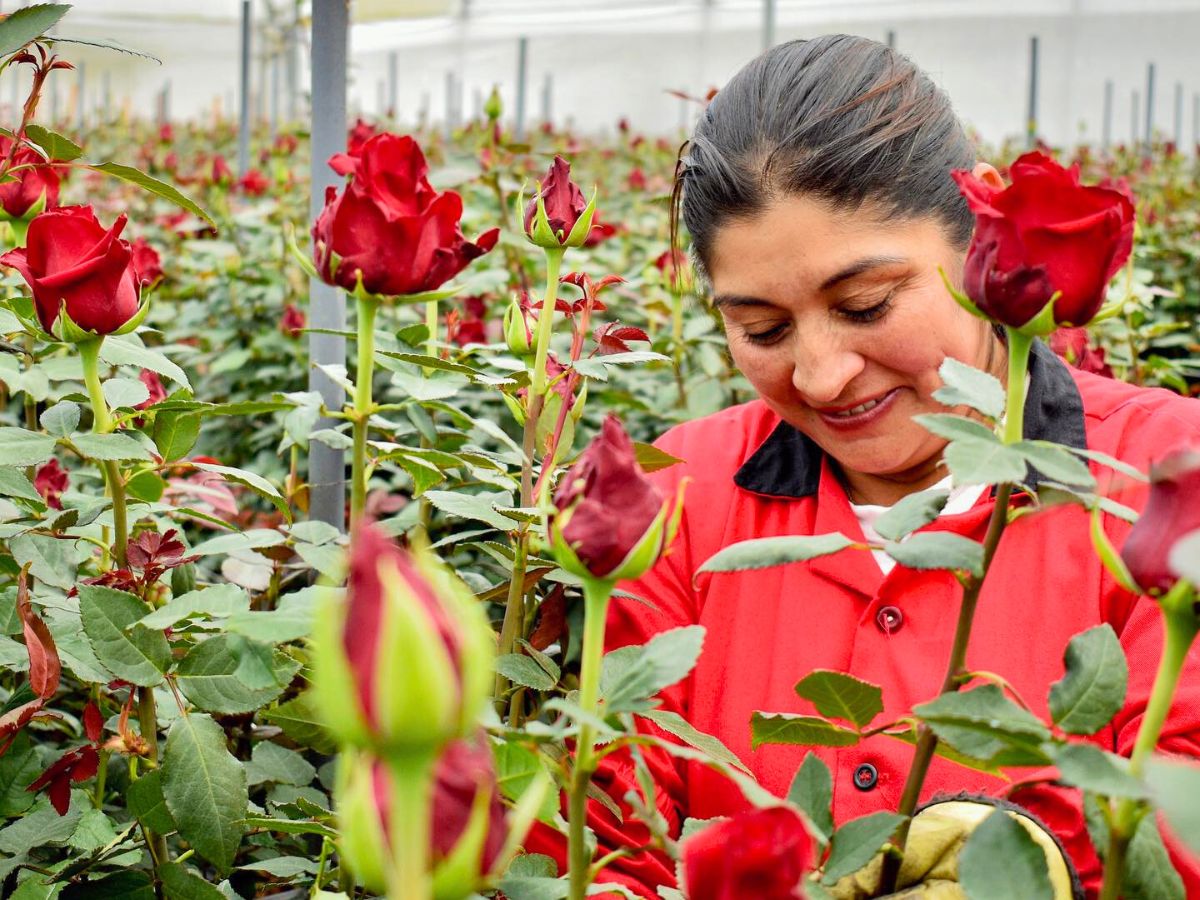
Elsewhere, it is also a member of key international floriculture institutions, including Union Fleurs, Floriculture Sustainability Initiative (FSI), and the International Association of Horticultural Producers (AIPH/IAHP).
Domestically, Asocolflores has forged strategic alliances with the Colombian Business Council for Sustainable Development (Cecodes), the National Business Council (CGN), and the Farmers' Society of Colombia (SAC). Such partnerships enable the association to amplify its voice in advocating for the interests of the flower industry, while also aligning its efforts with broader priorities around sustainability.
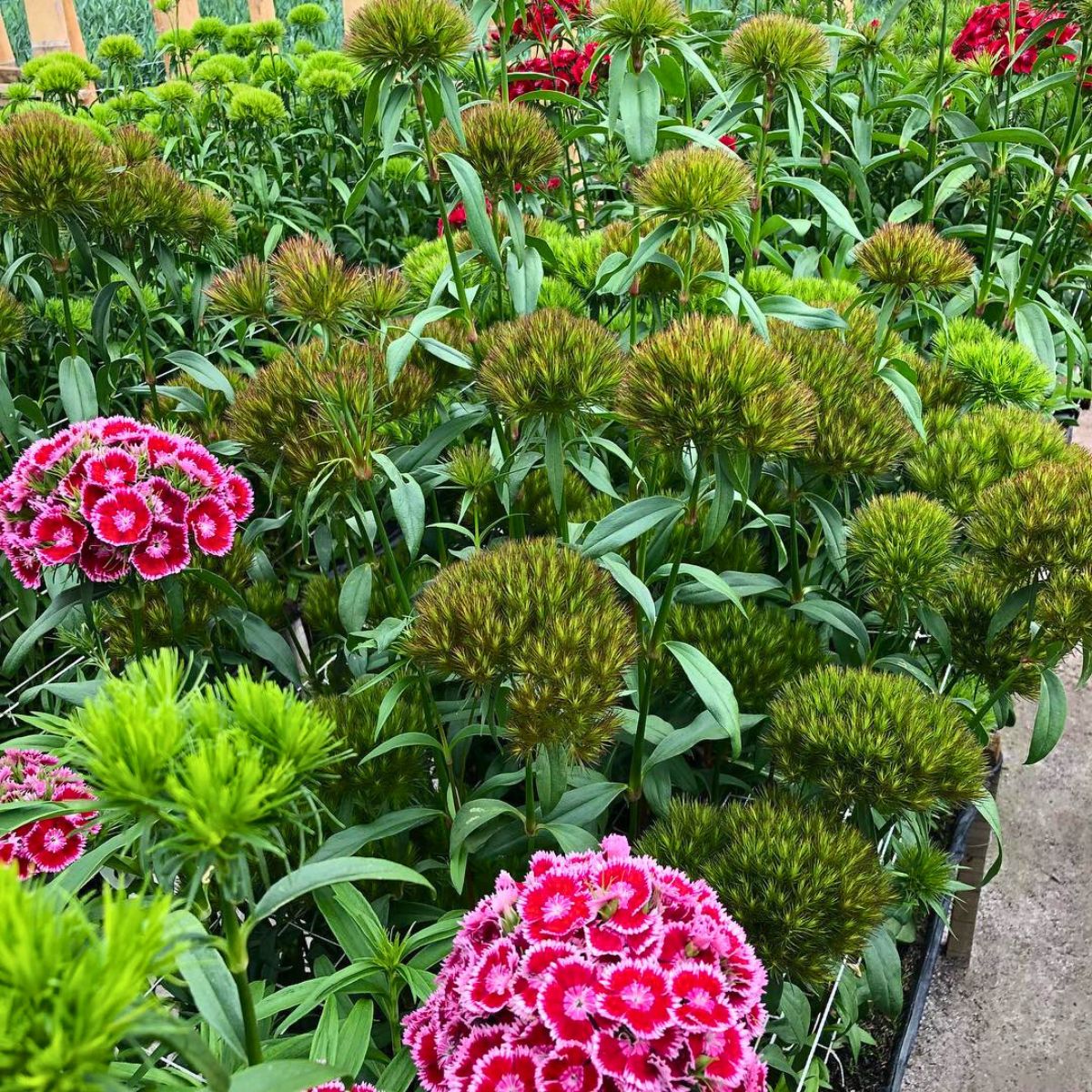
Photo by @floresauroracolombia
Be that as it may, through its multifaceted efforts, Asocolflores has not only cemented Colombia's status as a leader in the floriculture industry but also has elevated the country’s reputation as a champion of ethical, environmentally-conscious flower business practices. Looking ahead, the association remains keen on driving the continued growth and success of the Colombian flower industry.
Feature image by @grupovegaflor, header image by @fillcoflowers.

